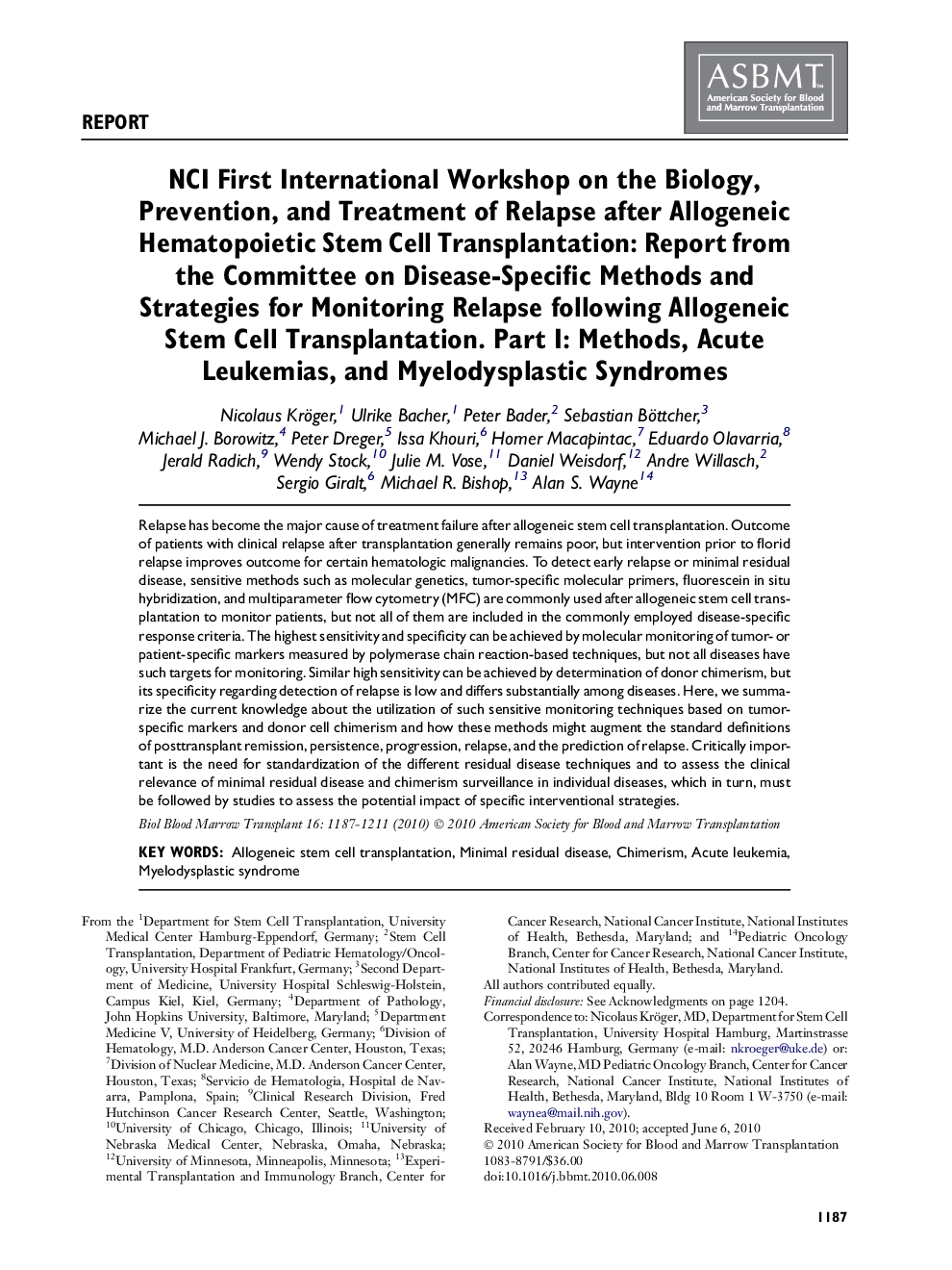| کد مقاله | کد نشریه | سال انتشار | مقاله انگلیسی | نسخه تمام متن |
|---|---|---|---|---|
| 2103849 | 1546331 | 2010 | 25 صفحه PDF | دانلود رایگان |

Relapse has become the major cause of treatment failure after allogeneic stem cell transplantation. Outcome of patients with clinical relapse after transplantation generally remains poor, but intervention prior to florid relapse improves outcome for certain hematologic malignancies. To detect early relapse or minimal residual disease, sensitive methods such as molecular genetics, tumor-specific molecular primers, fluorescein in situ hybridization, and multiparameter flow cytometry (MFC) are commonly used after allogeneic stem cell transplantation to monitor patients, but not all of them are included in the commonly employed disease-specific response criteria. The highest sensitivity and specificity can be achieved by molecular monitoring of tumor- or patient-specific markers measured by polymerase chain reaction-based techniques, but not all diseases have such targets for monitoring. Similar high sensitivity can be achieved by determination of donor chimerism, but its specificity regarding detection of relapse is low and differs substantially among diseases. Here, we summarize the current knowledge about the utilization of such sensitive monitoring techniques based on tumor-specific markers and donor cell chimerism and how these methods might augment the standard definitions of posttransplant remission, persistence, progression, relapse, and the prediction of relapse. Critically important is the need for standardization of the different residual disease techniques and to assess the clinical relevance of minimal residual disease and chimerism surveillance in individual diseases, which in turn, must be followed by studies to assess the potential impact of specific interventional strategies.
Journal: - Volume 16, Issue 9, September 2010, Pages 1187–1211